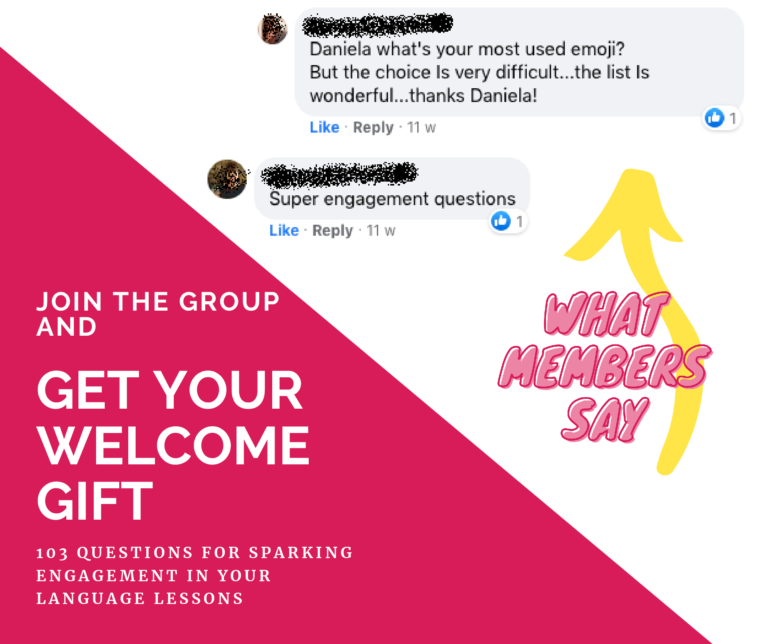
Students, teenagers, professionals, teachers, parents, sons and daughters. To me, they are just people. People who wish to improve their English and be able to communicate spontaneously and fluently, feeling at ease in words they speak. People are the salt of Learn English through Drama format because they accept to take the biggest challenge in learning English: to reveal their weaknesses and to share them with their mates. This post is about the feelings and the emotions that an English speaking course based on drama triggers and how we use them in order to boost students’ skills.
Learning English triggers emotions
I have already written about how Learn English through Drama uses warm-up exercises to create a good atmosphere for learning. Now it is time to write spend a few words about the soul of this English speaking course: the group of people taking part in it.
Drama always triggers lots of emotions. When it triggers happiness, joy and confidence it is easy to lead the group and to go ahead with new activities. “Good” emotions and feelings make teachers’ job easier – that’s for sure – because those emotions feed the group on positive energy.
But how about those emotions coming from thoughts such as: “I can’t do that”, “I’m not able to do it, I won’t never be able”, “I’m too shy – insecure – incapable – awkward”. Frustration is a very common feeling when it comes to drama. It is, indeed, when drama is a vehicle (a method) for learning languages. The good news is that… this is a good news! As teachers, we can’t avoid students’ frustration. Therefore, if we can’t avoid it, we must master it and use it at our advantage. How?
Learning English and the suggestopedic approach
Suggestopedia gives lots of guidelines to teachers about how to cope with students’ frustration and objections. Suggestopedic teachers keep behave and talk to students in way they make students feel at ease in their emotions: after all, there is nothing wrong in making mistakes when we learn something new. “You are safe here, I am here for you”: this is the thought suggestopedic teachers bear in mind ALWAYS. Suggestopedia uses a powerful metaphor to explain the teacher’s role in the learning process: the teacher acts like a mother teaching her daughter to go on the bicycle. She supports her little one and help her without judging her or pointing out her mistakes.
Bearing in mind what Georgi Lozanov (the father of Suggestopedia) called ‘the bicycle principle’, there are a number of things teachers can do when it comes to dealing with students’ frustration. For instance, they could decide to switch to another exercise, to give feedback, to talk to students, even to challenge the students. It really depends on the situation. This is something we cover in the Teachers Training courses for becoming teachers in Learn English through Drama.
Frustration in learning English
In Learn English through Drama courses, at the end of the first/second day of the course it happens that some participants state they can’t keep on attending the classes because they think the course is too difficult and challenging for them. Usually, those people are the weakest in the group as they have the lowest level of English in the group. Their reaction is understandable. As a teachers, we got used to such situations. Usually it is enough to let the time do the job for us. The following day those students usually catch up with the group and take part in the activities with confidence. They even drive the energy of the entire group brilliantly.
The emotional plateau in learning English
As a designer of Learn English through Drama courses, it seems to me there is an emotional plateau people reach, where they reach the pick of their frustration. Afterwards, they overcome that pick most often by themselves, as soon as they let themselves just dive into a new learning experience and enjoy it. Sometimes people just need time. A good teacher knows when it’s time for waiting and following students’ pace.
Frustration? You are welcome! We know you are just part of that beautiful game called learning English through drama.
Want more support?
Join the Facebook group Independent Language Teachers Collective to get daily advice, tons of free training and to branch out with other independent language teachers like you!
ALSO…
Available only for the Collective members: free list 103 question for sparking engagement in your language lessons.
This is what members say about the freebie:

Join in the Collective and grab your welcome gift:
Join Facebook Group

